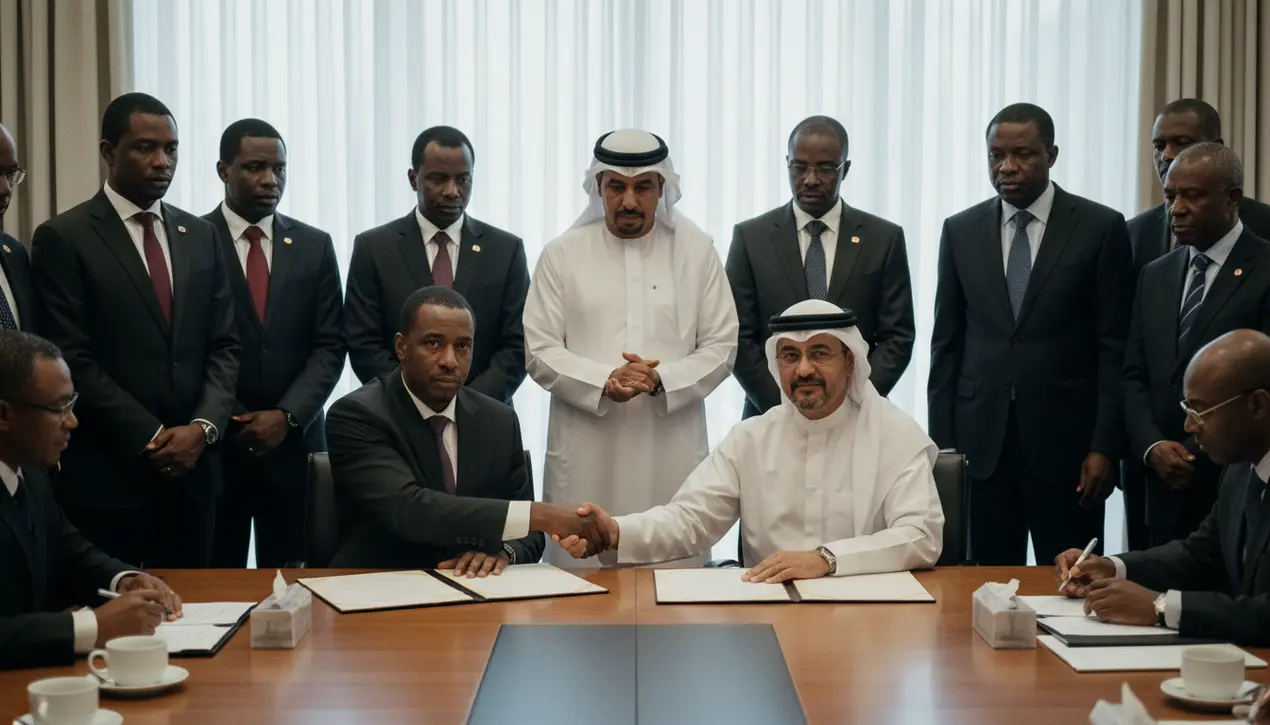
PoliticsdiplomacyPeace Talks and Treaties
DR Congo and M23 Rebels Sign Peace Framework in Qatar.
OL
Oliver Scott
2 hours ago7 min read2 comments
In a development that carries the fragile weight of cautious optimism, the Democratic Republic of Congo and the M23 rebel group have inked a peace framework in Qatar, a move that analysts are dissecting not for its promises but for its precarious position in a region perpetually on the brink. The agreement, building on a litany of previous, often-failed deals, ostensibly covers critical humanitarian corridors, the return of millions of displaced people, and a pathway to disarmament.However, to view this through a simplistic lens of 'peace' would be to ignore the complex, multi-layered conflict that has turned eastern DRC into a geopolitical tinderbox. The M23, a Tutsi-led militia with alleged backing from neighboring Rwanda—a charge Kigali consistently denies—has been a dominant and destabilizing force, seizing vast swathes of territory and displacing over a million people in recent offensives.The choice of Doha as a mediator is itself a strategic calculation; Qatar has steadily positioned itself as a key non-Western power broker in intractable conflicts, leveraging its diplomatic capital and financial resources to host talks for everything from Afghan governance to Gaza ceasefires. This framework emerges not in a vacuum but against a backdrop of escalating regional tensions, with the DRC government increasingly vocal about its accusations against Rwanda and the UN Force MONUSCO preparing a contentious withdrawal.The critical risk variable here is implementation. Historical precedents in the DRC are grim, with peace accords often crumbling under the weight of mistrust, spoiler groups vying for power, and the immense logistical nightmare of reintegrating combatants into a state apparatus that barely functions.The humanitarian access clause is paramount; the World Food Programme has repeatedly warned of catastrophic hunger in areas cut off by the fighting, and any durable cessation of hostilities must first allow aid to flow unimpeded. Yet, the M23's ultimate strategic goals remain opaque beyond its stated grievances, and its command-and-control structure is fluid, raising the specter of factional splits that could derail the entire process.Furthermore, the involvement of other armed groups, from the FDLR to various Mai-Mai militias, who are not party to this agreement, presents a clear and present danger of a security vacuum or renewed inter-communal violence. For the Congolese government of President Félix Tshisekedi, this deal is a high-stakes gamble; it offers a potential off-ramp from a militarily costly conflict ahead of elections, but it risks appearing weak if the rebels fail to uphold their end.For the international community, particularly the African Union and the East African Community, which have struggled to mediate, the Qatar-brokered deal represents both a potential breakthrough and a challenge to their own influence. The most probable short-term scenario is a fragile, localized calm, punctuated by sporadic violations, as all parties test the boundaries of the new framework. The true test will be whether this document becomes another forgotten line in the DRC's long history of conflict, or if the immense political and economic risks of failure finally compel a different, more durable outcome.
#DR Congo
#M23 rebels
#peace agreement
#Qatar
#humanitarian access
#displaced people
#featured
Stay Informed. Act Smarter.
Get weekly highlights, major headlines, and expert insights — then put your knowledge to work in our live prediction markets.
Related News
Comments
Loading comments...
© 2025 Outpoll Service LTD. All rights reserved.